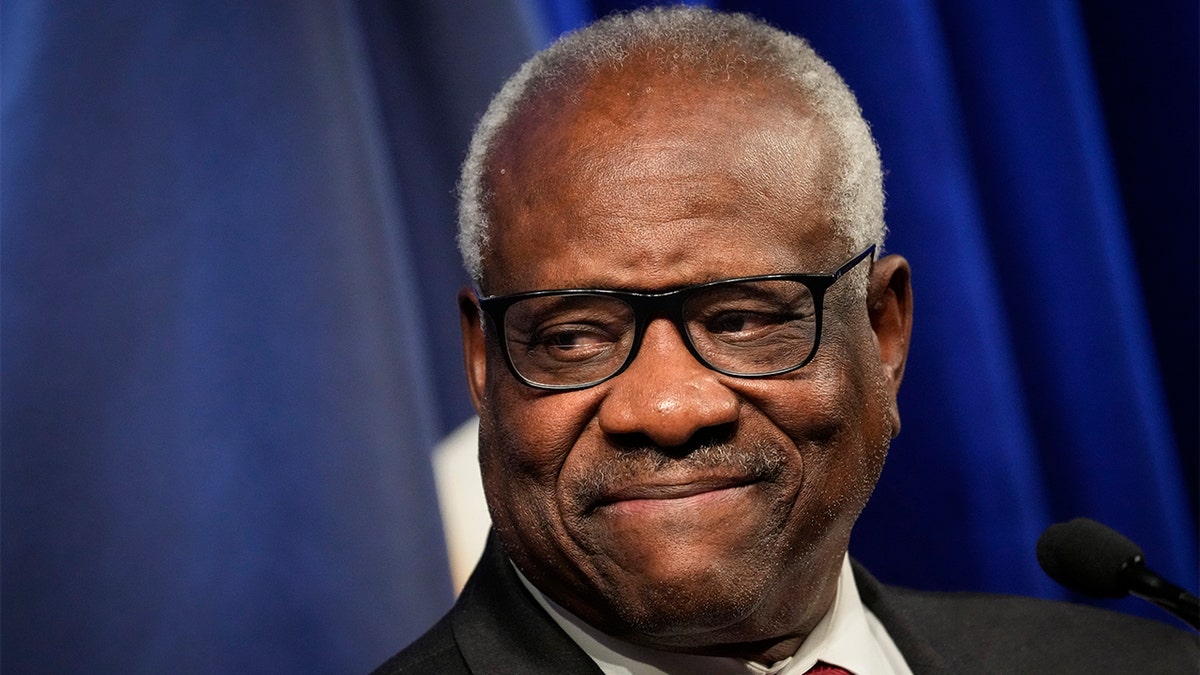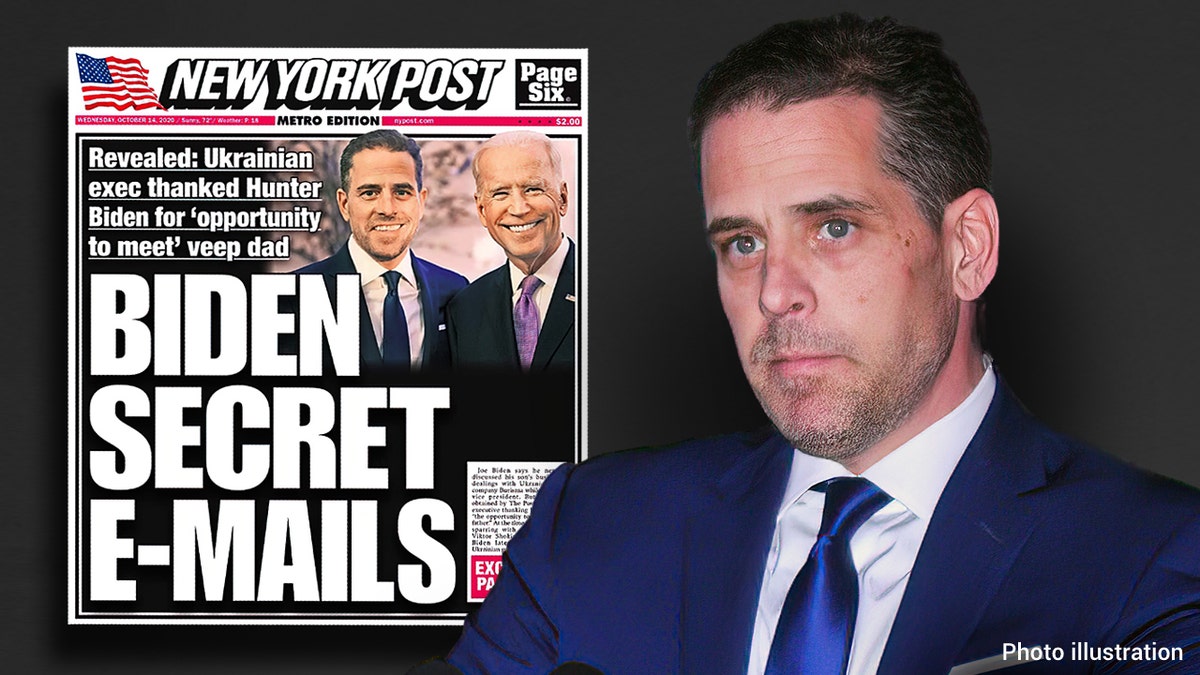Fox News Flash top headlines for February 23
Fox News Flash top headlines are here. Check out what's clicking on Foxnews.com.
The Supreme Court is set to hear arguments in the most significant free speech case since the 1960s on Monday, Feb. 26. The dispute comes down to one question: Do Big Tech companies have a constitutional right to censor other people?
The court will hear two connected free speech cases. The broader of the two, NetChoice v Paxton, stems from a challenge of the Texas law which protects its residents from Big Tech censorship. The other important case, Moody v NetChoice, was also brought by Big Tech to challenge a Florida law which prohibits Big Tech censorship of political figures.
The Media Research Center has now documented more than 6,400 cases of censorship by firms such as Amazon, Google/YouTube, and Meta — including the egregious suppression of the New York Post Biden laptop story ahead of the 2020 election. To protect Texans from Big Tech’s abuses of power, Texas enacted a new "common carrier law."
JOHN OLIVER OFFERS JUSTICE THOMAS MILLIONS TO 'GET THE F--- OFF THE SUPREME COURT'
Common carriership is a longstanding legal concept for private companies which hold themselves out as "open to the public" and also control access to other markets. Common carrier laws have existed for centuries, covering utilities, telecommunications firms and railroads.

Many believe Supreme Court Justice Clarence Thomas helped set in motion the challenge to Big Tech censorship with comments he made. (Drew Angerer/Getty Images)
A common carrier is forbidden from denying service to or discriminating against its customers. While it was already broadly understood this category included large social media platforms, Texas eliminated any doubt by explicitly classifying them as such.
Under its trade association NetChoice, Big Tech has advanced a profoundly silly argument for why courts should block the Texas law. Big Tech claims that, by barring social media platforms from subjectively banning users, Texas is compelling the platforms "to speak" against their will.
Big Tech now begs the court to create a constitutional right to censor, immunizing discrimination —- a right that would apply even if a platform’s stated goal was to manipulate elections or target people by race and religion.
If courts accept Big Tech’s arguments, it would mean that notoriously anti-Israel Google could have an unlimited constitutional right to ban Jewish Americans from posting videos on YouTube. If this sounds far-fetched, keep in mind that Facebook has already banned several Punjabi-American Sikhs from the platform specifically because of their racial and religious identity.
To be clear, any of the Big Tech firms covered by the Texas law can choose to stop being common carriers whenever they like. All they would have to do is say that they are publishers, no different than newspaper or book editors and entirely protected by the First Amendment. Being a publisher, though, means accepting liability for the content on their sites.
Of course, platforms like YouTube and Facebook know many of their users are uploading defamatory, fraudulent and even violent content, and they do not want to face any responsibility for that. Therefore, instead of choosing to be publishers, they are asking activist judges to let them enjoy all the benefits of being a common carrier (total immunity for customers’ conduct) while avoiding any of the responsibility (the obligation not to discriminate).
The Fifth Circuit rightly rejected Big Tech’s laughable argument, saying that it was "staggering" for "platforms [to] argue that buried somewhere in the person’s enumerated right to free speech lies a corporation’s unenumerated right to muzzle speech." Nevertheless, there is a genuine danger that the Supreme Court will side with Big Tech and rewrite the Constitution to enshrine censorship.
CLICK HERE FOR MORE FOX NEWS OPINION
One justice who is unlikely to join in such an effort is Justice Clarence Thomas. Many believe the Texas law was, in part, inspired by an opinion he wrote in 2021, where he remarked that "[i]n many ways, digital platforms that hold themselves out to the public resemble traditional common carriers" because they "are at bottom communications networks, and they ‘carry’ information from one user to another."

The New York Post's bombshell reporting during the 2020 presidential election was one of many topics heavily censored by Big Tech. (Getty images | New York Post)
Justice Elena Kagan, an appointee of then-President Barack Obama, joined Thomas in contending (unsuccessfully) that the Texas law should have remained in place while the court decides its fate. A justice is unlikely to allow a law to go into effect if she believes that, on appeal, it will be ruled unconstitutional.
While Kagan may surprise court observers by siding with Texans’ free speech rights, Justice Brett Kavanaugh remains an enigma. When he was a circuit court judge, Kavanaugh claimed some common carriers possess "editorial discretion" to censor in violation of federal law. If Kavanaugh still believes in this invisible "editorial discretion" loophole to duly enacted civil rights statutes, then he could well side with Big Tech against free speech.
CLICK HERE TO GET THE FOX NEWS APP
If Kavanaugh and four other justices take this drastic step, the ramifications for America will be devastating. Only once in history has the Supreme Court limited a common carrier law. That was in the now discredited Plessy v. Ferguson case, where the Supreme Court allowed a railroad to deny service to a Black man.
Choosing to uphold Texas’s free speech law ought not to be difficult for the Supreme Court. Centuries of precedent reiterate that Americans’ fundamental liberties can be protected with common carrier laws. It would be much better for the justices to follow these rulings rather than create a new constitutional right for the world’s largest corporations to discriminate.
CLICK HERE TO READ MORE FROM DAN SCHNEIDER
Tim Kilcullen is counsel for investigations at the Media Research Center.











































